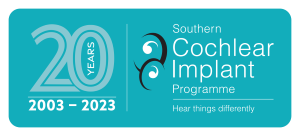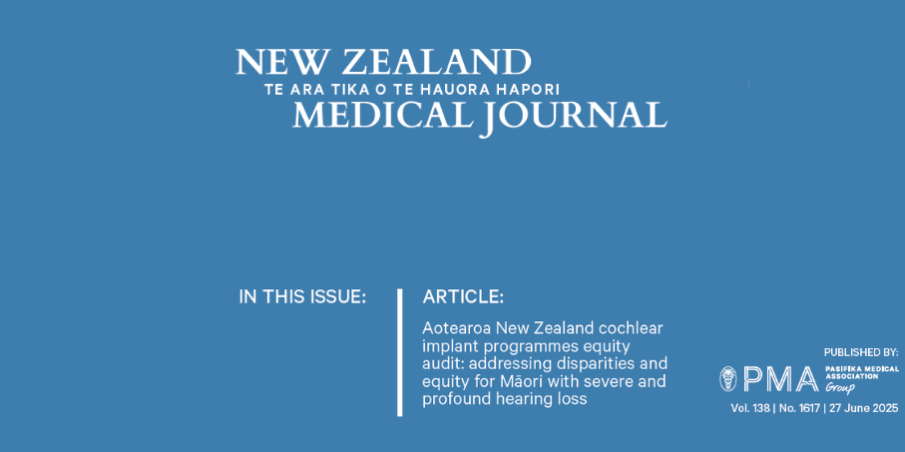We’d like to share new joint research carried out by the Northern and Southern Cochlear Implant Programmes that has just been published in the New Zealand Medical Journal. The study, titled “Aotearoa New Zealand Cochlear Implant Programmes Equity Audit”, explored whether Māori are receiving equitable access to cochlear implant (CI) services in NZ.
We know from a basic understanding of our own programme that Māori adults – in particular – are under-represented on the programme.
Led by Pat Tuohy, Neil Heslop, Jill Mustard, Phil Bird, Holly Teagle, and Robert Gunn, the research analysed anonymised data from both of New Zealand’s cochlear implant programmes. The focus was on comparing outcomes for Māori and non-Māori clients, including acceptance for surgery and time to implantation.
Key findings:
- Once accepted as candidates, Māori children and adults were not disadvantaged when proceeding to surgery compared to non-Māori.
- Waiting times for adult Māori clients after candidacy acceptance were similar to those of non-Māori.
- For children, time to surgery after approval as a candidate was consistently low across all ethnic groups.
The study’s conclusion is somewhat encouraging: once Māori clients enter the cochlear implant system, they receive equitable care and timely access to surgery. These results suggest that internal systems and pathways within New Zealand’s cochlear implant services are helping to support equity in hearing healthcare.
Where the system needs significant improvement is improving access (identification, referral, and assessment) to the programme for Maōri in the first place. We’re part of an ongoing commitment to ensuring fair and accessible hearing care for all New Zealanders particularly Māori.
You can read more about the research in the New Zealand Medical Journey below.

